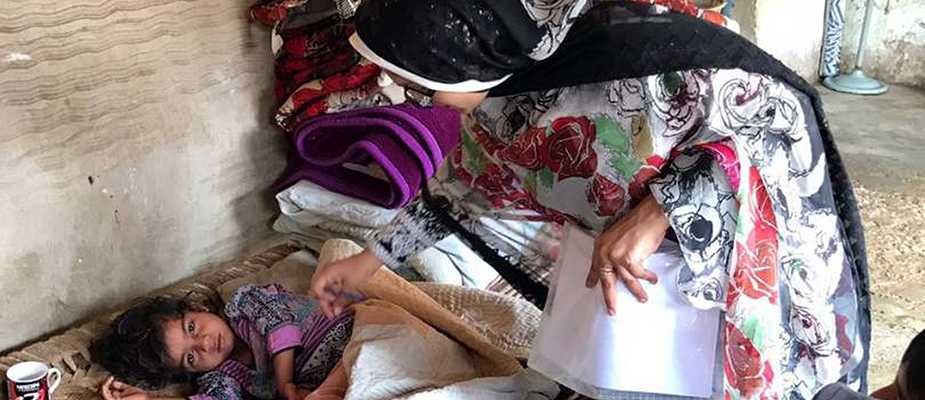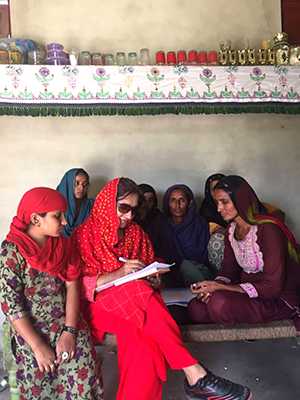Progress in Pakistan: Growing Response to Vaccine-Preventable Diseases

Dr Shumaila does an active case search during a measles outbreak investigation in District Sukkur, Province Sindh, February 2017.
Connection Makes a Difference

Disease detectives are trained through Pakistan’s Field Epidemiology and Laboratory Training Program (FELTP) and stationed in Disease Surveillance and Response Units (DSRU) located all over the country.
Much of the difference in the country’s ability to tackle outbreaks is because these FELTP fellows use all the local resources available to stop outbreaks. This not only includes provision of vaccines and special vaccine campaigns, but also involving communities and their leaders in controlling the outbreaks. The results of their efforts are showing.
In 2015, Pakistan’s disease detectives conducted a total of 38 outbreak investigations. In 2016, nearly twice as many outbreaks were investigated: 70 overall, 49 of which involved vaccine-preventable diseases. As of the first quarter of 2017, the number of investigations is already at 61 outbreaks 43 for vaccine-preventable diseases and growing.
In fact, 90% of outbreaks investigated by disease detectives in the DSRUs also involved resources from local health departments. This is a major step toward making the country’s programs sustainable and preventing future pandemics.
Vaccines Protect Children
The results of these investigations have enabled Pakistan to control the outbreaks and initiate vaccination campaigns in the areas where they’re needed most.
“Most of these outbreaks are measles, but nearly all other diseases are there too,” notes Jawad Asghar, Resident Adviser of CDC’s FELTP in Pakistan. He points out that in 2016, field investigations led to about 29,500 children receiving lifesaving vaccines, with about 17,000 more in the first three months of 2017.
Related Links
- Page last reviewed: August 7, 2017
- Page last updated: August 7, 2017
- Content source:


 ShareCompartir
ShareCompartir